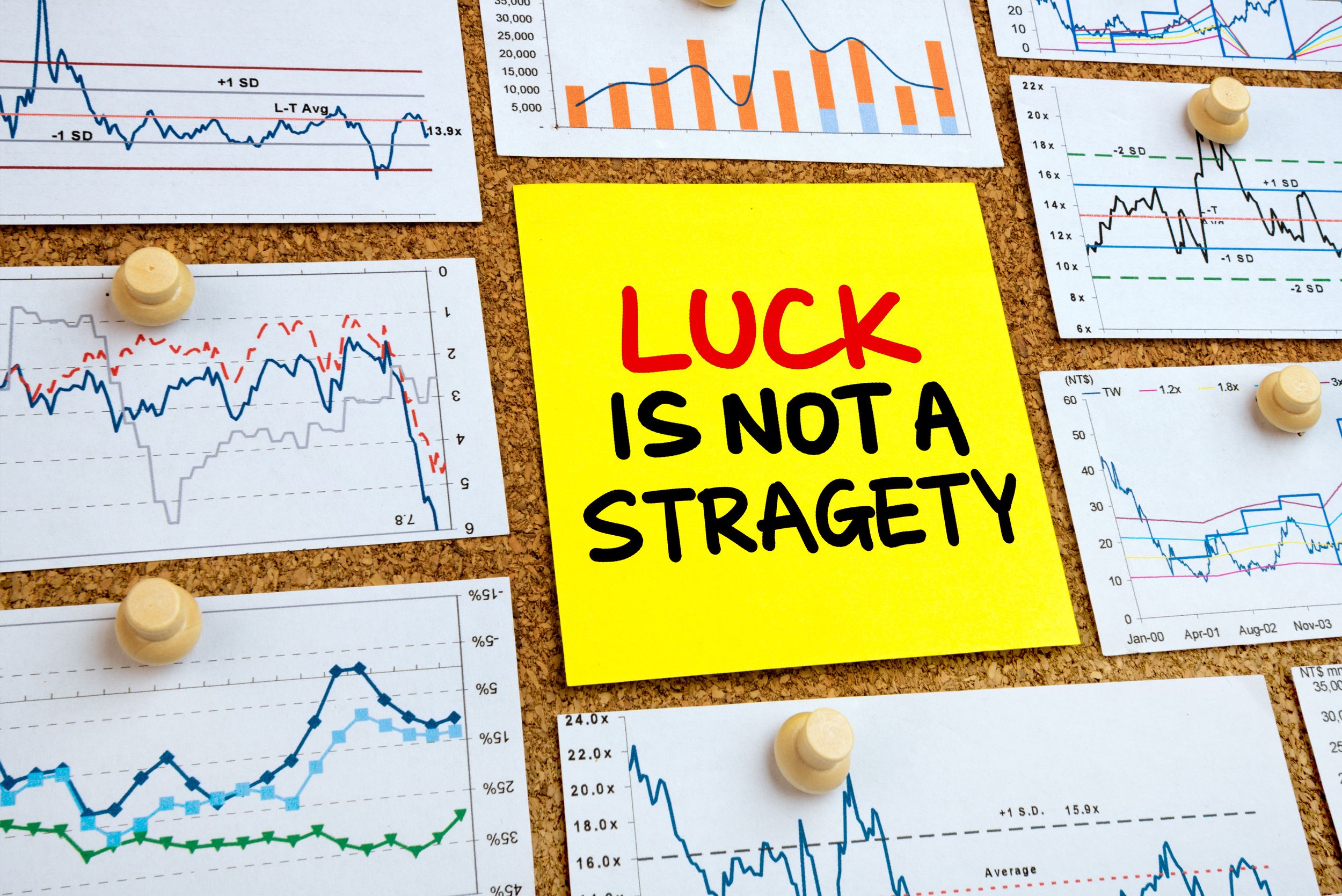I am fascinated by digital companies (“unicorns”) that have been in the forefront of digital market development. Creating new standards, rules of business and customer behavior with new innovative business models and data-driven services. Who would have thought that we today 2023 drive electronic cars, depend on our phone for our daily living, and consumer business and public service online. The world has truly changed during the last 20-30 years and probably for the better – with faster access to information, service and people. What I ask myself is why these companies were able to change the market – and be at the right place and the time. Is it just simply a matter of luck? A idea that the whole digital revolution is driven by theory of chance?
In a Gartner research a few years ago, it was concluded that the most common word in CEO reports and presentations was the word ”uncertainty”. We are experiencing a unique moment of time where uncertainty in economic growth, technical advances, social development (internet maturity), geopolitical uncertainty, and political regulations are challenging old management and strategic theories and analysis. When asking the Head of strategy at a multinational company about the future, it was clear that the predictability of future was limited to 9-12 months (often less). After that, it was just blurry. What does this actually mean? And how does a company actually grow under these circumstances? Is it a matter of luck?
It is easy to assume that “luck” is the determining factor for success in unpredictable circumstances. Why else would companies such as Microsoft, Amgen, Intel, Southwest Airlines and Progressive Insurance beat the market index 10 times? Because they happen to be at the right place at the right time with the right market offerings? That is however making it a bit too easy. In fact Microsoft was only the second choice for IBM to build a new operative system for their PCs. Wasn’t that rather “unlucky”?
Jim Collins has in his research (Great by Choice) analyzed the impact of luck and whether it is a determining factor for successful companies. The fact is that both the successful and the mediocre companies in the study had equal amounts of lucky and unlucky moments over a long period of time.
Definition of Luck (according to Jim Collins): A lucky or unlucky event requires fulfillment of three conditions:
- The event occurs independently of the activities of the company’s key stakeholders
- The event has the potential to have a high impact (good or bad) on the performance of the company and
- There is an element of unpredictability in the event.
The general conclusion is that all companies will experience both lucky and unlucky moments over time. The amount of good or bad luck is not determining why some companies are more successful than others. However, successful companies get a better Return on Luck (RoL) than mediocre companies. In other words, when a successful company is “lucky”, then they ensure that they get the full benefit of the event, and are able to use it to minimize the consequences of unlucky moments. How does this work?
The interesting thing about companies with a high Return of Luck (RoL) is that they have excellent governance, leadership and culture. This is also supported by Frans Johansson’s in The Click Moment, 2012. It is not a coincident that these companies are more successful then others. Here are the reasons:
- These companies understand that the highest RoL is gained from “who” joins the company, and not advances in structure or processes. It is about getting the right people on board and creating an atmosphere where employees grow and are allowed to be excellent.
- The companies are experts at evaluating each event from both a strategic and operational perspective to make the right decisions. They understand when they have an opportunity (or risk) and act upon it with full force.
- They create the right culture and strategy to allow for luck to happen. These moments (click moments) are more likely to happen in organizations where employees are allowed to think outside the box, get influence from other cultures or industries, and are given time to pursue ideas.
These conditions are much related to concepts such as agile strategy and governance in the sense that by extensive environmental sensing, continuously evaluating the current position, and steering the organization (what tasks and time management gives the best business value?) the companies will produce as much customer value as possible. Solely focusing on operational excellence (costs and productivity) does not give the right conditions for high Return on Luck – and hence lost business opportunities. Research shows that companies that create the conditions above, generally are more profitable than others – and Return on Luck plays a significant role here.
My recommendations for the IT organization:
- Don’t ask what made us lucky, but rather who made us lucky. Competitive advantage is often an effect of who is recruited to the firm and not what systems or processes are used.
- Create an environment based on environmental sensing and constantly evaluating opportunities and threats at the moment. Prioritize everything! When an opportunity (luck) occurs, go in with full force to get all the benefits.
- Allow employees to once per month (or quarter) spend time on an area of interest without need for time reporting or service delivery – in cross-functional teams (or with representatives of other industries or cultures). Consultants I have talked to confirm that this is the absolute best way to solve problems and create new business opportunities. Create opportunities for luck!
- Dare to take time to evaluate the situation. Don’t act on impulse but rather systematically evaluate how urgent the situation is (how long time does one have to make a decision) and then use the time to make the correct decision.
It is not surprising that the digital companies (“unicorns”) were able to succeed. They created governance, culture and capabilities to boost Return on Luck. When the opportunity appeared – they were prepared and able to act with full force. It was little to do with luck but rather about having the right leaders, culture, and business capabilities. Unfortunately, I see many companies and organizations stuck in operational issues (cost and productivity) and now allowing themselves to be “lucky”.
I want to end with one of my favorite quotes from the sports world. Ingemar Stenmark was in the late 70’s a very successful alpine skier (with over 85 World Cup wins and multiple Olympic medals) and a superstar of the sport. After he won yet another World Cup competition in alpine skiing, a commentator asked him about luck and his response is legendary:
“The more I practice and exercise, the more luck I have”
Tag/s:Business TransformationDigital EnterpriseFuture of WorkPersonal Development




